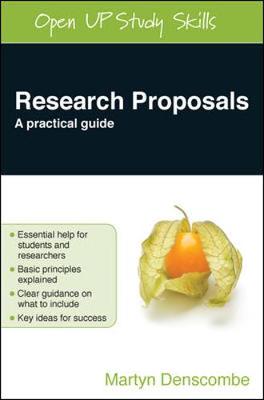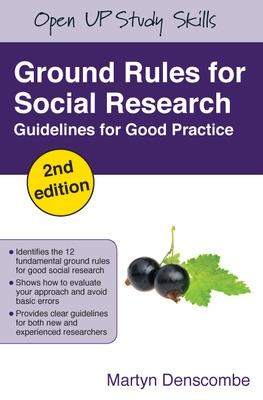Open Up Study Skills
3 total works
Dr Kate Adams, Reader in Education, Bishop Grosseteste University College, Lincoln, UK
"This much-needed handbook provides a guide for any researcher to turn a research idea into a successful research proposal ... Denscombe offers both a clear framework for organising the research thought process and plentiful hints for crafting a persuasive case for why a research proposal deserves financial support for getting it done."
Dr Alberto Asquer, Lecturer of Business Strategy and Policy, Faculty of Economics, University of Cagliari, Italy
"This is a clear and unambiguous guide covering all the essentials needed to build strong research proposals. It will prove to be invaluable not only to those new to writing research proposals but as a fast reference point for those already familiar with the requirements."
Jennifer Grant, PhD researcher, University of Sunderland, UK
"This how-to guide is 'a candle in the dark' for many who want to start writing research proposals. It is ... brimming with straightforward strategies which anyone can use to overcome the key fears associated with 'keeping on track' and 'selling your' research to convince funders and even your professors!"
Hosea Handoyo, Boehringer - Ingelheim Fonds Research Fellow, Germany
Whether you are an undergraduate student doing your final year project, a masters student writing your dissertation, or a PhD student applying for acceptance onto a doctoral programme, this practical book will help you to produce a successful and persuasive research proposal.
Written by an experienced and best-selling author, this handbook uniquely draws a parallel between a research proposal and a sales pitch. The book provides guidance on what to include and what to omit from your proposal and demonstrates how to 'sell' your research idea. Denscombe ably guides you through each stage of the process:
- Choosing a research topic
- Reviewing the literature
- Formulating the research question
- Explaining the research methods
- Estimating the costs and planning the time involved
- Obtaining research ethics approval


